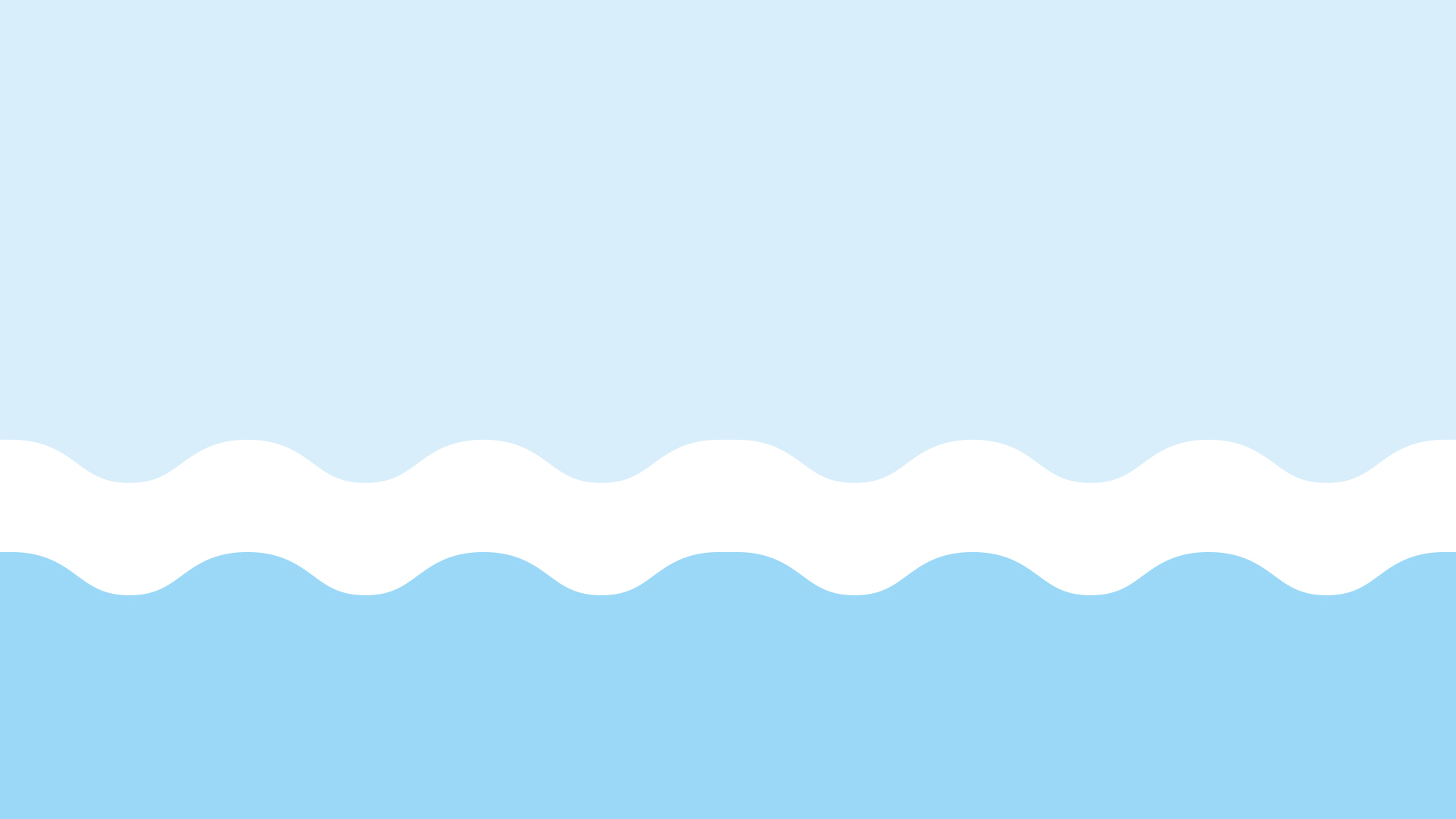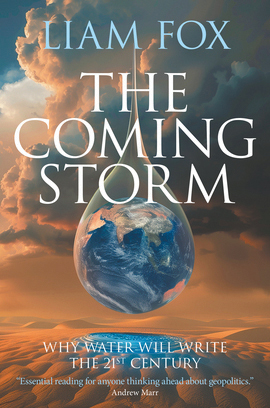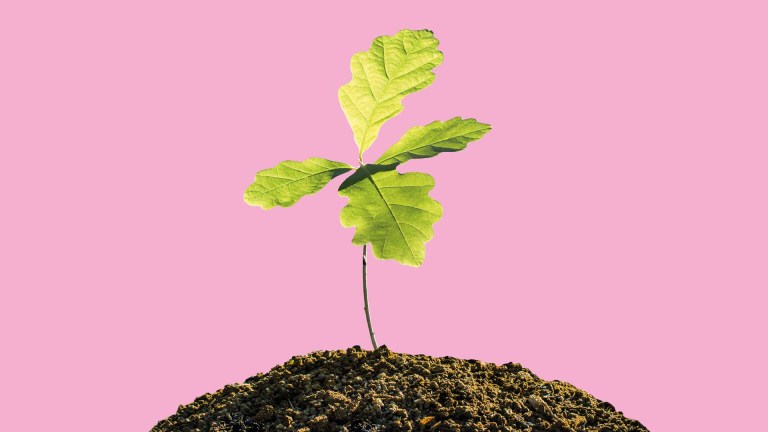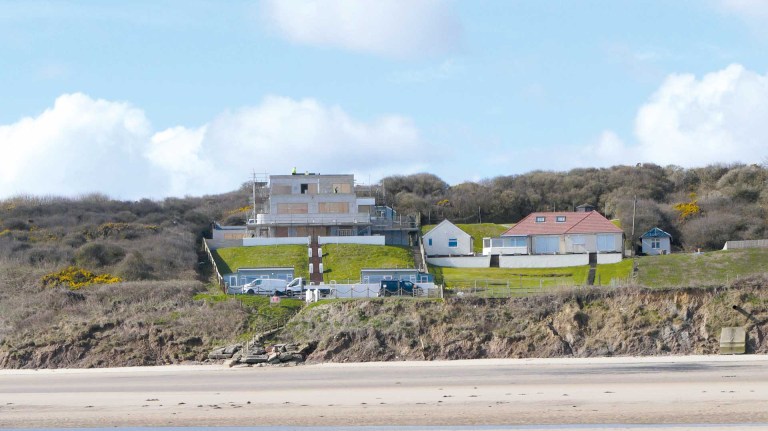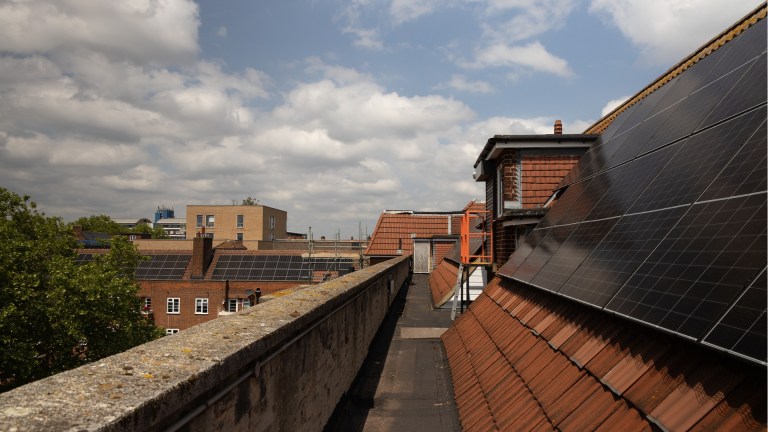Visiting a sewer in Calcutta in the early ’90s left a lasting impression on Liam Fox. A minister in the British Foreign and Commonwealth Office at the time, appointed by then-PM John Major, Fox remembers his sanitation revelation.
“We were basically just putting in piping to stop sewage flowing down a street. It was the reaction of the people that struck me. We might as well have given them a goldmine because clearly it made such a difference to their quality of life.
Get the latest news and insight into how the Big Issue magazine is made by signing up for the Inside Big Issue newsletter
“It stuck with me,” Fox continues. “And in my time as defence secretary I began to get seriously concerned about the potential for conflict over water. Everybody was talking about oil and yet for me, the one thing that people would really fight for is the one thing they have to have, which is water.”
Liam Fox was David Cameron’s first defence secretary, serving from 2010 until he resigned in 2011, after controversy about being accompanied on official MoD trips by friend and lobbyist Adam Werrity. Fox would later return to Theresa May’s government, appointed secretary of state for international trade, wrestling with the post-Brexit political landscape.
His time at the top of government provided insight into the biggest issues facing us today, and Fox has identified water as being the biggest of them all.
It’s May’s successor Fox has to thank for pushing him to take action on the issue – but not from a senior position within government.
“When Boris [Johnson] relieved me of my cabinet duties in 2019, I decided to spend some time doing quality reading on climate,” Fox says. “From my own position with a science background [Dr Fox was a GP before an MP], what did the science actually tell us?”
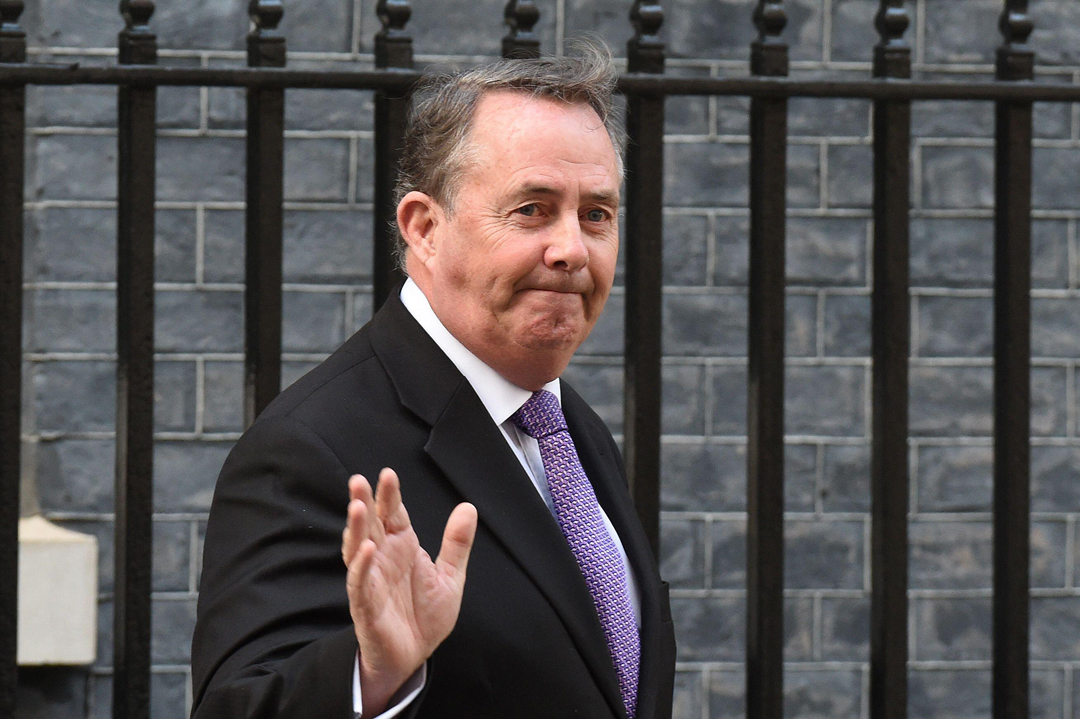
Being out of the thick of it helped Fox appreciate the bigger picture.
“It’s not so much being outside as having the time,” he adds. “Government is very siloed. We think of our economics in one place, we think of security and risk in another and so on. We need to learn to join the dots.”
And Liam Fox has done just that in his new book. The Coming Storm tells the story of water from how it arrived on Earth eons ago to how it influenced our evolution. It also points out potential pressure points regarding scarcity, global security and its importance in healthcare and climate change.
It contains simply staggering facts that put precipitation in perspective. Of all the water in the world, only 3% is fresh water. Only 0.3-0.5% is available for our use. The population has grown by 6.6 billion since the start of the last century, but the amount of water available to drink, power industry and agriculture remains the same.
The potential for conflict over this most valuable natural resource was something that caused Fox concern when defence secretary. In the years since, have these boiled over?
“Two places where you can see the progression,” he begins. “One of them is the Nile because the Ethiopians have now finished building the Grand Renaissance Dam, which Sudan and Egypt fear could be used as a weapon. If the Ethiopians wanted to stop the outflow of the Blue Nile they could do so.
“More of a worry for me is Tibet. More than 40% of all the world’s population get either their drinking, agricultural or industrial water from a river that arises on the Tibetan Plateau – either the Indus, Ganges, the Brahmaputra, the Mekong, the Yellow or the Yangtze. China now has control over the headwaters of all those rivers. China is not interested in Tibet because of the Dalai Lama, China is interested in Tibet for its natural resources, number one being water.”
Water supply has long been both a cause of and weapon waged in war. The Water Conflict Chronology website records incidents dating back to 2500BC to recent events such as the Kakhovka Dam on the Dnipro River being destroyed by Russian forces in Ukraine and Israel attacking water wells in Gaza this year – over half of Gaza water sites have been damaged or destroyed since Israel began military action last year.
There is, Liam Fox says, a dire need for international law to be developed around water rights. “The only real law that applied to the Nile, for example, came from British colonial times when we had a water-sharing treaty,” he says. “We need to get a body of international law that’s justiciable and enforceable. You also need to ensure that you use technology to minimise the risk of dependency. In Gaza’s case, that will mean building up hugely their ability to desalinate and provide themselves with fresh water.
“The good news on that is where there have been real efforts, real progress has been made. When countries determine their water use based on how much water they actually use and not abstract, territorial or sovereign claims then it’s possible to reach agreement.”
A global problem
If you’re in the UK reading this, it’ll either be an unseasonal but welcome early summer, or it’ll be raining. Probably raining, which makes it hard to care about problems largely centred in faraway lands. But Fox writes that we are only enjoying “the illusion of water and food security”. How long can that illusion last?
“Well, it will be stressed if the global population continues to rise at anything like the level that it has. Throw in unknown of the impacts of climate change. And if you get, as I rather suspect we will, big changes in water flows in South Asia, then you could get very big problems with famine and thirst and mass migration as a consequence. So if we think we can ignore this because it happens somewhere else, somewhere else can be over here quite quickly.
“Global problems require global solutions. Don’t think you don’t have a responsibility, which I know is uncomfortable and some people will be in denial but look at the science. Get a grip and make your judgments based on reality and empiricism, not on instinct or prejudice. The data is there and unless we want to fall back into an anti-Enlightenment society, we better wake up and not smell the coffee but read the figures.”
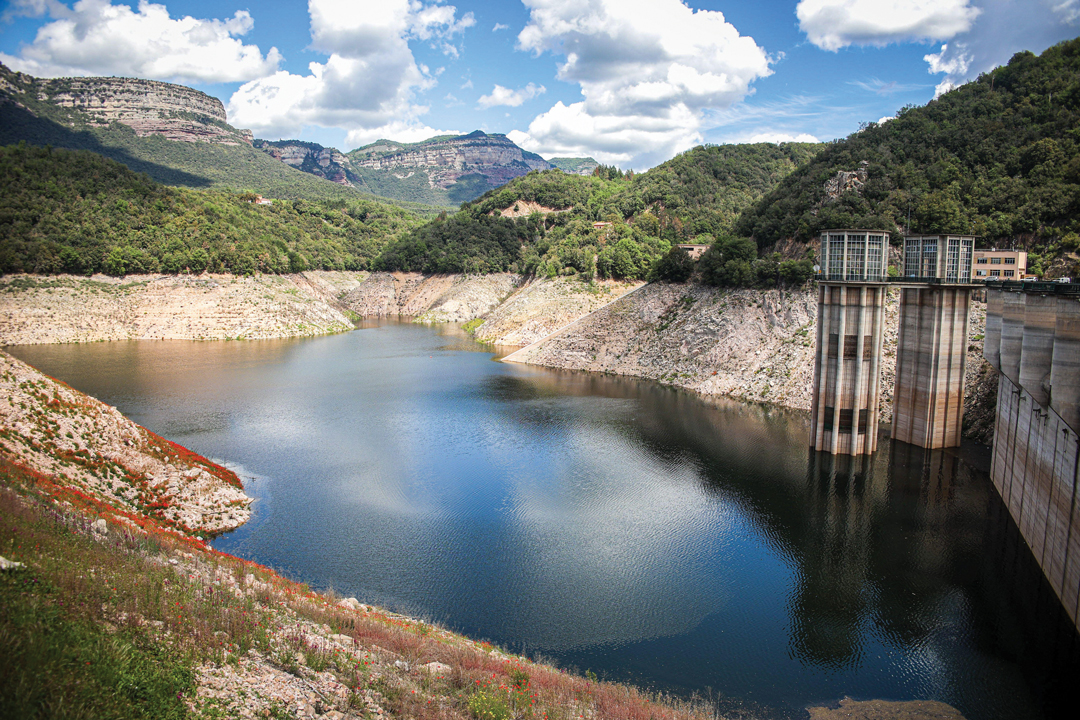
So Liam Fox is woke on climate related issues which includes migration, a situation he notes in his book is “made worse by simplistic rhetoric”.
Rhetoric from government focuses on demonising people coming to our shores… “Yeah, and not the causes,” he interjects.
“When I was trade secretary, I used to warn that if the G20 increased their level of protectionism, then that would stop developing countries being able to trade their way out of poverty. And if I lived in a world where I couldn’t trade my way out of poverty, but I had a mobile phone and I could see what prosperity looked like, I know what I would do.”
Since 2009, 0.7% of imports were covered by tariffs or other restrictive measures, in this decade it has increased to 10.3%.
“In other words,” Fox explains, “more than a tenfold level of protectionism in the world’s richest economies. ‘Til I was blue in the face, I used to say to people – and I remember seeing it to the WTO in Buenos Aires [Liam Fox was a candidate to become its director-general in 2020, but didn’t make the final round] – you may be able to protect your rust belts, but watch your borders because you cannot take economic decisions in a vacuum.”
“I still hear people on both the left and right of politics saying, ‘I don’t believe in globalisation.’ Well, that’s nice, that’s like saying, ‘I don’t believe in nighttime.’ In business they’ve understood globalisation much better than in the world of politics. Politicians don’t really like globalisation very much because it limits their ability to have an impact over their own domestic events.”
Politicians, especially now, don’t like looking past what will get them through the next five or six months ahead of a potential election, when they should be making the decisions needed to get us through the next five or six decades. Is there a way to navigate that short-termism?
“We have got to try to get our debate out of the weeds and start to focus on bigger issues, because those bigger issues will have a huge impact on us, whether we want to think about them or not.”
